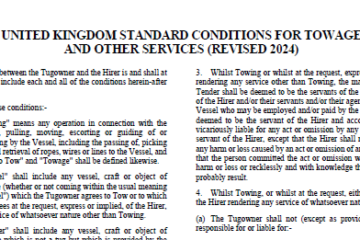The European Tugowners Association (ETA) favours initiatives that would help decarbonise and mitigate the effects of climate change. Indeed ETA supports and shares the ambitions of the European Union for 2050 in terms of the Green Deal.
Nonetheless, ETA notes that the ETS emissions scheme for the maritime sector, which will come into force on the 1st of January 2024, will severely impact several ports on Europe’s peripheries.
With the introduction of the ETS, it will be more attractive for transhipment to visit non-EU ports since they would either pay 50% of ETS or none at all. All this while still polluting. Hence, European ports, such as in the Mediterranean, will lose transhipment activities to other ports in North Africa but will still be in an area with shipping pollution.
The ETS for the maritime sector will reduce the competitiveness of specific ports within Europe. Once it is cheaper to use hubs in North Africa or the UK, because of no or low ETS, EU ports, which were hubs, will lose their competitiveness as they will no longer be attractive as hubs.
Ports have their investment plans to ensure resilience, competitiveness and sustainability. However, the threat of losing competitiveness will inevitably slow down or stop such investment.
A natural consequence of loss of competitiveness and fewer transhipment calls within ports will be the loss of employment. Ports, port services, and freight logistic companies will be faced with lesser work, and consequently, a natural development would be laying off people.
You can find the ETA´s position to the inclusion of shipping emissions in the ETS here.



0 Comments